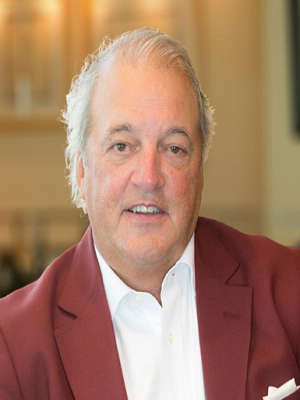CLEVELAND (Legal Newsline) - It was a stroke of good luck for Cuyahoga and Summit counties in Ohio that U.S. District Judge Dan Polster selected them for the first bellwether trial out of thousands of other cities and counties that are blaming the opioid industry for the nation's addiction crisis.
Rather than roll the dice on potential multibillion-dollar jury verdicts, nearly all the defendants settled. In the latest agreements announced Monday, the home counties for the cities of Cleveland and Akron will receive $260 million in cash from AmerisourceBergen, McKesson, Cardinal Health and Teva Pharmaceuticals, on top of $66 million in previous settlements with Johnson & Johnson and others.
By settling earlier, the counties may have gotten significantly more than they would have received under a national allocation plan that Polster has approved to try to settle the litigation.
It was good luck for the private lawyers representing Cuyahoga and Summit counties, too: They will likely take home 40% of what their clients receive, an $82 million reward for about two years’ work. The firm's contract stipulates a 40% fee after the commencement of trial, as opposed to 33% after final pretrial proceedings.
If these settlements trigger a wave of similar agreements, as lawyers hope, the payday could be immense. North Carolina Attorney General Josh Stein yesterday announced a tentative $48 billion settlement with the industry which, if it succeeds, will shower private lawyers with billions of dollars in fees.
The firm that stands to win the most will likely be Motley Rice, which pioneered the strategy of joining forces with government attorneys to sue the tobacco industry in the 1990s. Motley Rice name partner Joe Rice has never revealed his personal take from the $260 billion tobacco deal but private lawyers in total will receive $14 billion from the multi-year agreement.
Former Motley Rice partner Jack McConnell revealed in financial filings when he was named a federal judge in Rhode Island that he would receive $2.5 million to $3.1 million a year in tobacco fees through 2024.
Cuyahoga County is represented by Napoli Shkolnik, a major asbestos law firm based in New York, along with Robbins Geller and several local law firms. Summit County is represented by Motley Rice, Robbins Geller and local firm Brennan, Manna & Diamond. Cuyahoga County didn’t immediately provide its contract with outside counsel but a spokesperson confirmed the firms would earn a 25% contingency fee.
A contract between Napoli Shkolnik and the city of Dayton, Ohio, revealed an even richer fee schedule, with the rate escalating to 33% after the start of trial – the Cuyahoga settlement came at 1 a.m. the morning trial was scheduled to begin, but after a jury was seated.
Ohio Attorney General Dave Yost has complained the fees in the bellwether cases are too high, saying the fee money “should go to fight the epidemic, not to line the lawyers' pockets.” But even his private lawyers also stand to make a windfall if opioid manufacturers and distributors sign a large settlement.
While Ohio law limits contingency fees for outside counsel at $50 million, the state broke its litigation into two pieces, against manufacturers and distributors, and will pay up to the $50 million limit for each, according to a Yost spokesman. The state’s lawyers in the manufacturing case include Hagens Berman, former Mississippi Attorney General Mike Moore and Texas asbestos attorneys Baron & Budd. The lawyers in Ohio’s distribution case are Richard Fields, Scott Gilbert and Keating, Muething & Klekamp LLC.
Most of the lead lawyers in the opioid litigation are prolific political contributors, mostly to Democratic causes. Motley Rice attorneys gave some $530,000 in 2018, according to Federal Election Commission records, nearly all of it to Democratic candidates, and another $69,000 this year. Simmons Hanly Conroy, another leader of the plaintiffs’ executive committee, has contributed about $500,000 over the past two years.
Mark Lanier, who was scheduled to argue the bellwether case for the plaintiffs, has also given more than $500,000, although many of his recipients are Republicans, including Texas Senator John Cornyn, whose committee received $10,000 from the Houston attorney last year.
Early in the litigation Judge Polster ordered attorneys to fly coach and keep meticulous time and expense records in an apparent effort to forestall criticism over excessive fees in what is at least in theory public litigation. The judge hasn’t made any billing records public, and it is not known how his authority will extend in practice to negotiated settlements like the one on the eve of the bellwether trial.
He has approved a “negotiation class” that would include every U.S. city and county and steer as much as 25% of a settlement to private lawyers, with the largest share going toward shared legal expenses including fees for the top firms, like Motley Rice and Simmons, that negotiated the deal.
Motley Rice represents multiple states including Rhode Island, South Carolina, Utah and Alaska. Other firms with state clients include Hagens Berman, Cohen Milstein, Baron & Budd and Napoli Shkolnik.
